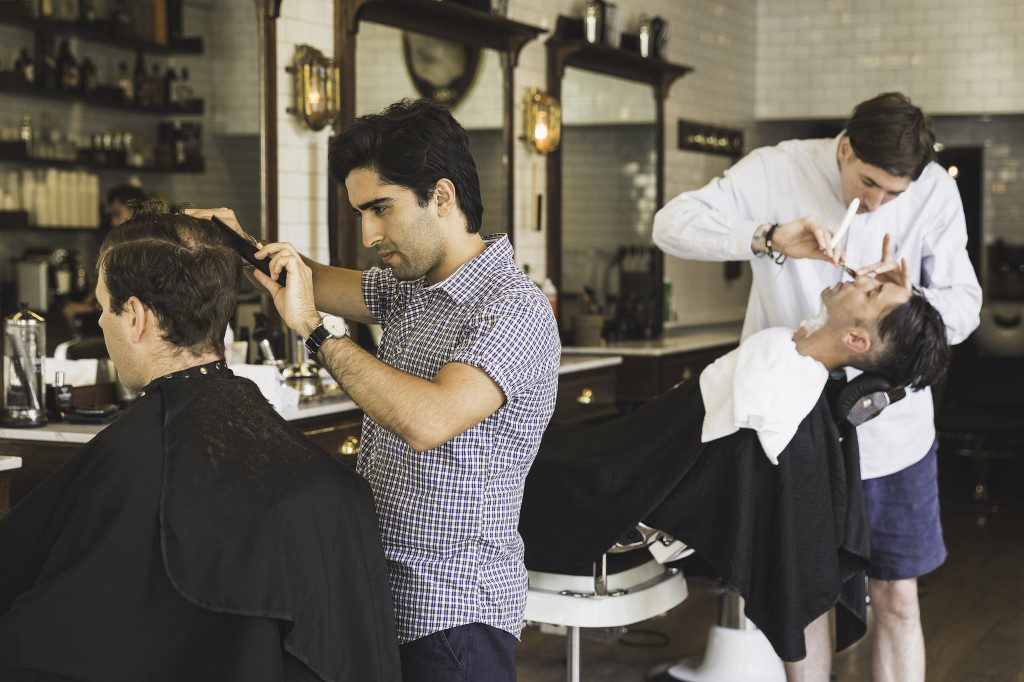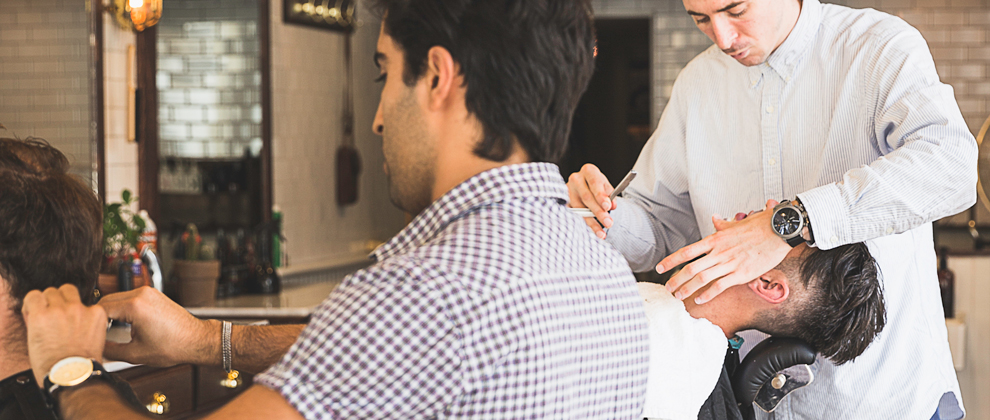by Rachel Short | @TheRachelShort
I’m female, single and almost 29—so what the heck would I know about male grooming? Short answer; not much. I’ve always dated guys who care little for their appearance, satisfied on bi-monthly shaves and receding hairlines. But as I age, I start to appreciate those men who do put careful effort into their appearance – not because I care mostly about what dudes look like, but because I know it must take some serious dedication to have to get up every day, and spend an hour getting their frizzy chin hair under control. I’m lucky if I wash my hair twice a week.
So where did this sudden resurgence of perfectly-pomaded hair and clean-shaving come from? Was it the introduction of television shows like Boardwalk Empire or Mad Men? James Bond, perhaps?
Christopher Pickings, owner of Fitzroy emporium and barbershop Pickings and Parry says the revival of old-school male self-grooming stems from a number of things—one of them being the desire to return to a more simple life. Pickings and Parry sells handcrafted clothing, footwear, hats and a range of grooming accessories for men.
“It’s a backlash against mass production,” Pickings says, “we’re trying to keep a connection to the past when things were ostensibly simpler and when things were well made and built to last.”
Though in this city it may feel like a hipster trend, those who choose to follow this lifestyle usually remain loyal to it. “We sort of say that we’re trying to be classic rather than fashionable, but inevitably everything is in fashion,” Pickings says, “The trend of heritage and handmade becomes popular but hopefully it transcends the short-term popularity and becomes a culture of buying where a person will ask where it is made rather than how much it is.”
The ‘things’ Pickings is referring to are cutthroat razors, shaving brushes and leather goods. Hand-carved wooden handles, hand-sewn wallets, one-of-a-kind razors. “I’m not saying that these razors are as advanced in technology as those that you buy in supermarkets,” says Pickings, “but they are timeless and last a lot longer than those made for this throw-away culture we live in.”

The barbershop aspect of Pickings and Parry is relatively new to his 18-month-old business, but is now a busy part of it. Because the Australian education system scrapped gender-specific hairdressing in the 1980s, barbering has become a lost art—making it difficult for Pickings to find a barber experienced enough to work with him.
“Finding barbers who can do all the traditional services, shaving and cutting well, are hard to find, but there’s a slow resurgence of barber academies and apprenticeships now—our barber Jack has been working for almost 40 years,” Pickings says. He saysthe only country in the world with an existing barbershop culture is the USA.
With all the beards Melbournians wear and barber poles gracing the inner northern suburbsm, one would be forgiven for thinking we have a rich barber culture already. Shops like Captains of Industry, Dr Follicles, Temple Town, Lords of the North and Eureka Rebellion Trading embrace the traditional feel of the barbershop with original chairs, beers on arrival and the ‘manly’ vibe of the place.
That’s not to say they won’t cut women’s hair—this is 2015 after all. But it’s the difference between the old-school and the new-wave that credits the the return to the barbershop. Unlike busy salons, who charge upwards of 100 dollars for a cut and leave you smelling like chemicals; the barbershop is much more affordable and quiet, leaving way for gentle conversation, thought and tranquility.
Businesses making hair products and cosmetics for men—like Baxter of California and Uppercut—have influenced the outset of others on the other side of the world, like Cutthroat Supply Co. in Australia and Triumph & Disaster in New Zealand. Rising popularity in this wave of male self-grooming has ensured these businesses—although perhaps only reaching a niche market—are doing remarkably well. To Pickings, it’s about “an appreciation for doing things properly and not rushing them – not being controlled by your job – it’s about taking half an hour in front of the mirror and then feeling good about yourself,”

